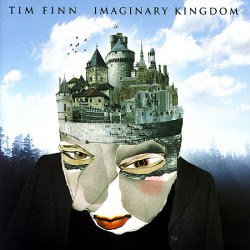I saw Tim Finn perform live not so long ago and I swear I was the youngest person in the theatre. He kicked the show off with an intruction/invocation by a Druid. Not something one sees everyday. Or should.
The show was very good. Mostly tunes from Finn's latest album. He is a very cool performer. Heavy emphasis on performance. He was obviously the driving creative force behind Split Enz (a band I never really cared for when I was a kid - probably due to cultural cringe; which I think I have since shucked off). An enduring perception was that it seemed odd to go see a rock performer in a comfortable, modern theatre where the entire audience is seated. Not sure about that. Or Hearn the Hunter.
I came across the clip for one of Finn's songs that has been nominated for male solo performance in the New Zealand music awards. I've decided to adopt as the theme song for the New Zealand creative economy..."They said it couldn't be done". Nice vid too, though it reminds me a little of Pixies clip from several years ago.

Order a copy of Imaginary Kingdom by Tim Finn *(Fishpond - NZ)
Q magazine said:
"Simply recorded in a backyard Nashville studio, it's an engaging album from a man finally happy within his own skin."
The show was very good. Mostly tunes from Finn's latest album. He is a very cool performer. Heavy emphasis on performance. He was obviously the driving creative force behind Split Enz (a band I never really cared for when I was a kid - probably due to cultural cringe; which I think I have since shucked off). An enduring perception was that it seemed odd to go see a rock performer in a comfortable, modern theatre where the entire audience is seated. Not sure about that. Or Hearn the Hunter.
I came across the clip for one of Finn's songs that has been nominated for male solo performance in the New Zealand music awards. I've decided to adopt as the theme song for the New Zealand creative economy..."They said it couldn't be done". Nice vid too, though it reminds me a little of Pixies clip from several years ago.

Order a copy of Imaginary Kingdom by Tim Finn *(Fishpond - NZ)
Q magazine said:
"Simply recorded in a backyard Nashville studio, it's an engaging album from a man finally happy within his own skin."
Comments
Post a Comment